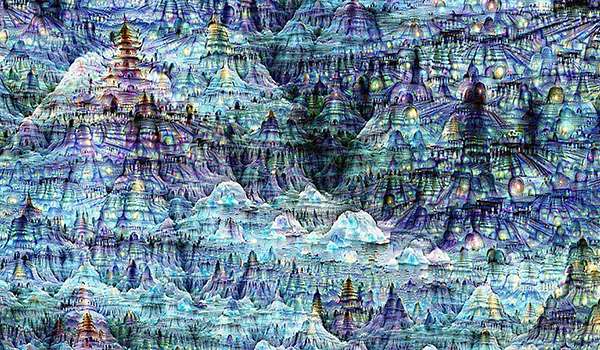May 27, 2016 weblog
Google set to explore making music with AI

Google wants to know. Can computers be truly creative? More specifically, can people bestow upon machines what we know as creativity and have the machines thinking creatively? Google knows that an answer does not come easily and some people may argue that the answer is hairy.
Do all people agree on what makes creativity creativity? Depending on what kind of definition you go by, if you build software that can take a note sequence and turn it into a melody by finding patterns where do you place it on the scale of creativity?
R&D is one of numerous sites that reported on the company's plans to launch a project that will figure out some answers. The project is called Magenta and it launches June 1. Magenta's running with its burning question. Can machine intelligence produce original music, videos, images, and text?
Popular Science had some details about the plan. "The group has about six researchers now, and will invite other academics to help try to solve the problem of creative machines." The project is part of the Google Brain team; it will leverage TensorFlow, which is an open source software library for machine learning. R&D quoted Google research scientist Douglas Eck:"The question Magenta asks is, 'Can machines make music and art? If so, how? If not, why not?'" Quartz carried a picture of Google researcher Douglas Eck at Moogfest, a North Carolina event that attracts creative and tech enthusiasts.
At Moogfest, Google showed the AI jamming and saying the music was not easy listening would be too polite. Moogfest site's notes said they are developing techniques for training neural networks to generate music and sound.
Noted Alphr: "Magenta will get better the more data is uploaded and analyzed. Google is pretty confident that Magenta will improve, and suggests that Magenta could be used to generate music for the public."
They hope to engage artists, software developers, and machine learning researchers in growing their open-source codebase built on TensorFlow. After inputting a few notes, the artificial intelligence built a simple melody from it, according to R&D.
Alphr also described Project Magenta. "After being fed with hours of music, Project Magenta will look for patterns or rules in the files, and then apply them to its own self-generated work. In fact, Google has already fed Magenta hours of music, and it's asking musicians to feed the AI with music, too."
Google is eager to find out more about AI and creativity for practical reasons. The R&D report said one goal was, according to Eck, is to produce open-source tools and models that help creative people be even more creative.
Eck, according to Popular Science, also said a Magenta app may be created to gauge whether people enjoy the art that the artificial intelligence produces.
Gershgorn in Popular Science also said the app would aim to gauge whether people like the art because it's novel or because it has inherent artistic value.
Eck said that the group will first tackle algorithms that can generate music, then move to video and then other visual arts. Moogfest's site identified Eck as a research scientist "working at the intersection of music and machine learning."
Actually, Curtis Moldrich of Alphr made a point that makes it difficult to laugh at the effort for very long. Said Moldrich: ..."the more I think about it, the more Magenta is actually creating music like you or I. After listening to other works for inspiration, and sticking to strict rules in the form of scales or keys, Magenta is then forming its own ideas - which is sort of how real-life musicians work."
Readers reactions in R&D point to the fact that there are no easy answers. What came first, the chicken or the egg. One reader (Chris) made the observation that "the result probably can't be better than the skill's and 'art' of the AI programmer himself."
Another (Timothy Reeves) said "It will be like the parent who looks at a piece of abstract art and says, "My five-year old could have made that painting!". Yes, but your five-year old *didn't* make that painting. You can create algorithms that *duplicate* creative patterns, or even come up with new patterns, but the *impetus* always comes from the creative human."
© 2016 Tech Xplore





















